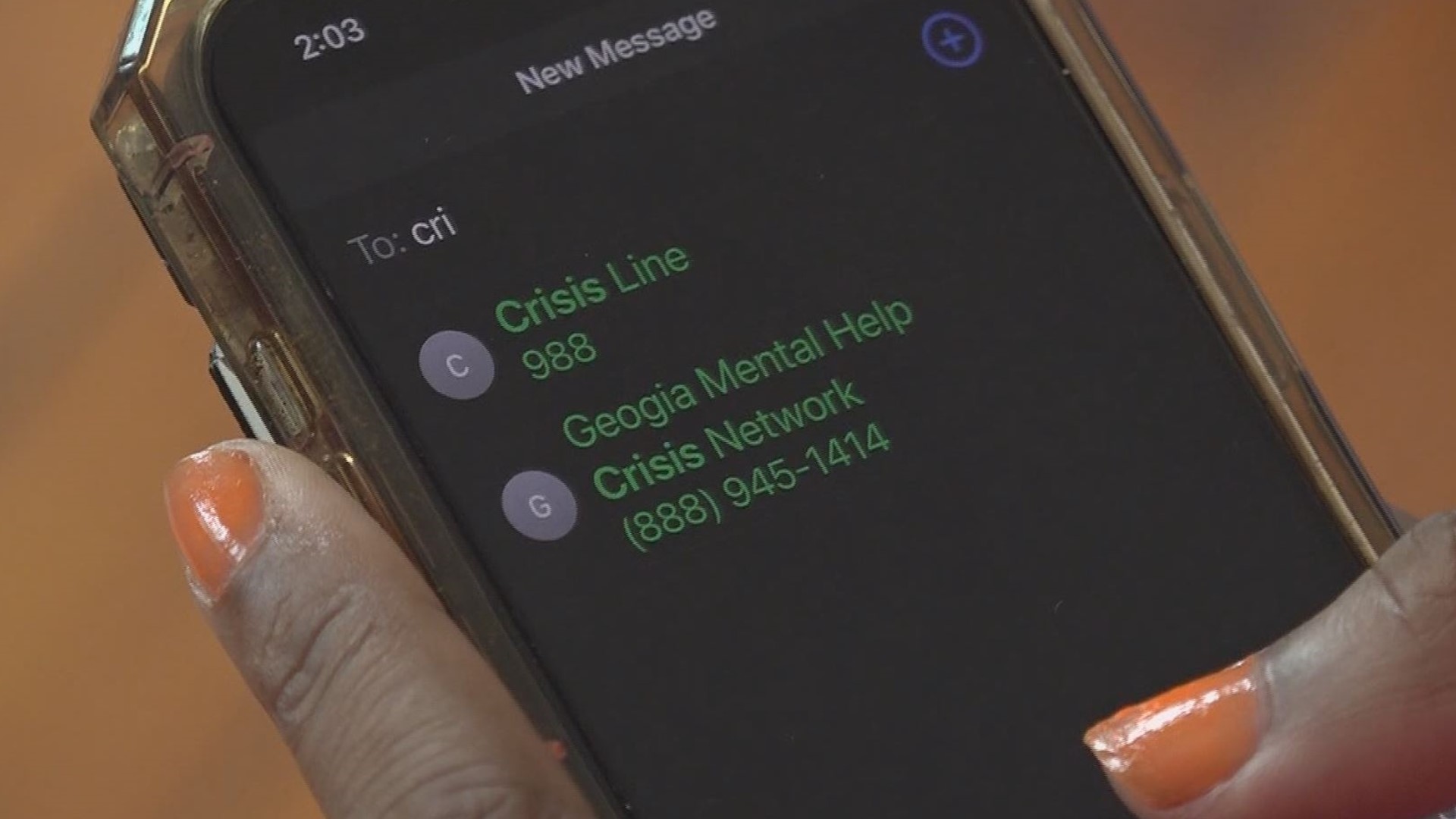ATLANTA — This weekend will mark one year since the new mental health crisis line went live. The three-digit number, 988, is a national emergency line like 9-1-1 but for mental health calls.
Despite battling funding and provider challenges, the 988 crisis line has seen an increase in calls and improved response time over the last year.
Since it launched on July 16, 2022, the line has seen a 12 percent increase in crisis calls. The general crisis line before 988 has seen a 42 percent increase since 2019.
Kevin Tanner, the Commissioner for the Georgia Department of Behavioral Health and Developmental Disabilities, says they’re getting ready for another surge.
“There has been a tremendous increase in the number of people calling for help,” said
Tianna Bridges was one of those people. She called 988 at her lowest point.
“I was like I have pills in my hand right now and I really want to take them. He was like, no, let’s talk. Let’s breathe first. Let’s talk about what got you to this point,” she said.
It didn’t solve everything, but that 45-minute conversation lifted Bridges out of her darkness enough to start her in a new direction.
“It just made me feel like I’m stronger. I can beat this,” she said.
There are over 200 crisis centers nationwide where people answer the calls and texts.
Commissioner Tanner says in those moments, seconds count, which is why he’s so proud they have improved call response time.
“We’ve been able to bring the time to answer the call down from 200-plus seconds to an average of just over seven seconds over the last several months,” he said.
The next step, he says, is to work on the mobile units, the two-person team made up of at least one Georgia clinician that responds to a crisis call in person.
“We have a mobile crisis team assigned to every part of our state. The goal is to reach everyone in Georgia within one hour. We obviously have not met that yet. We’re working toward that,” he said.
They’re also working to get the word out. Tanner says 35% of people in Georgia have heard of 988 but only half of those people understand what it is.
As his department starts educating and marketing, Tanner expects the call volume to increase.
"Every time a local news story comes out, every time an article comes out in a newspaper, we see an uptick in that area in call volume," he said.
To help spread the word, Commissioner Tanner will travel around the state meeting with sheriffs to talk about 988. Tanner describes the solution as a three-legged stool: somewhere to call, someone to respond, and a safe place to go.
"It takes all three of those to make a crisis continuum work," he said. "It's going to take time and it's going to take additional financial resources and investment in the system."
To keep up with the anticipated increase, they’re looking for providers like nurses and social workers to answer these calls and texts. Tanner says that’s one of the biggest challenges he faces right now.
“Even though we’re answering those calls in seven seconds, as the call volume increases, and we know that it’s going to, we’re going to see that answer time start ticking up, which means we need to invest and be ready to answer that call,” he said.

